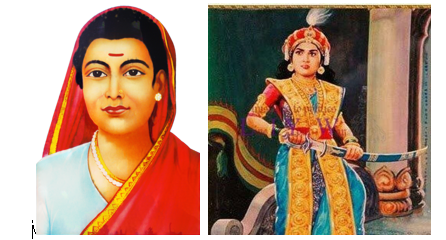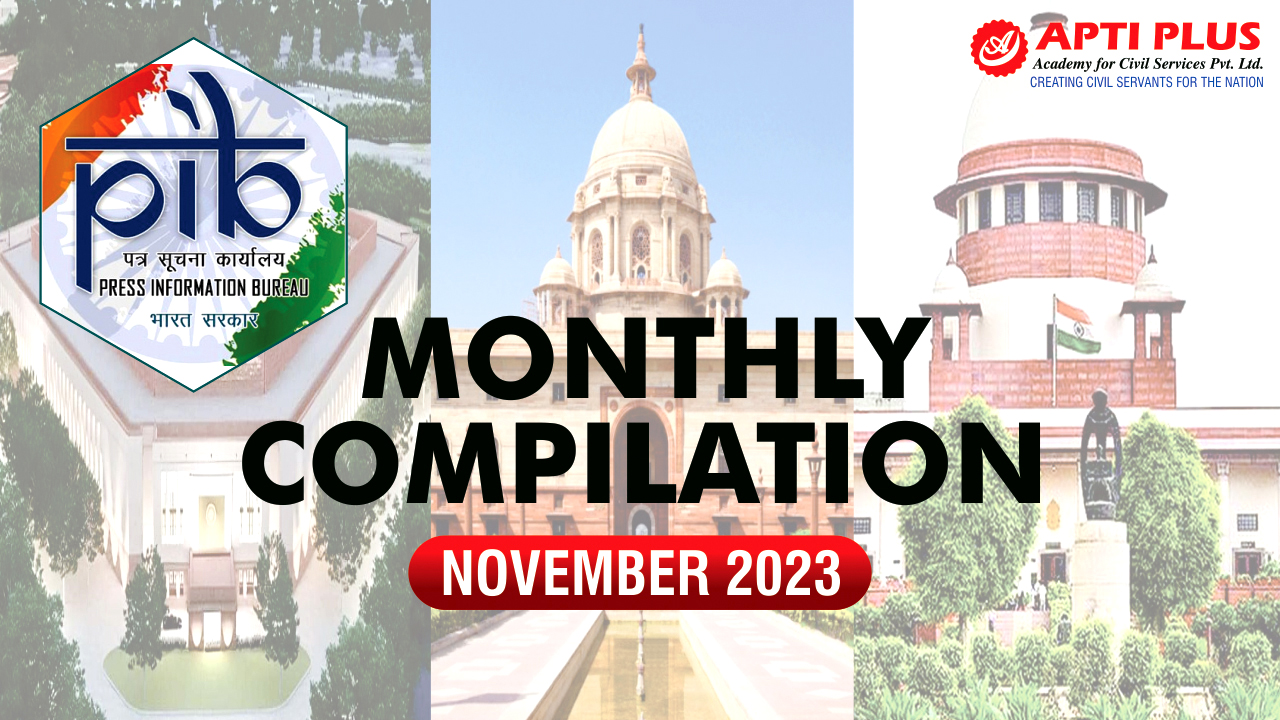
Disclaimer: Copyright infringement not intended.
Context
The Prime Minister paid tributes to Savitribai Phule and Rani Velu Nachiyar on their Jayanti.
Details
About Rani Velu Nachiyar
Early Life and Training:
- Born on January 3, 1730, she was the daughter of King Chellamuthu Vijayaragunatha Sethupathy and Queen Sakandhimuthathal of the Ramnad kingdom.
- Trained extensively in combat skills such as weaponry, martial arts like Valari and Silambam, along with proficiency in languages like French, English, and Urdu.
- Married the king of Sivagangai and had a daughter.
Conflict with East India Company:
- Entered conflict when her husband, Muthu Vaduganatha Periyavudaya Thevar, was killed in battle with the East India Company (EIC) soldiers in 1780 at KalaiyarKoil.
- Fled Sivagangai as a fugitive and sought assistance from Hyder Ali, who eventually provided her with soldiers, arms, and training, after initial reluctance.
Military Tactics:
- Rani Velu Nachiyar employed guerrilla warfare tactics and unconventional strategies, including using her knowledge of the terrain and surprise attacks to outmaneuver the British forces.
- She formed an all-woman army known as "udaiyaal" and trained them in combat, leading them into battle herself.
Leadership and Resistance:
- With the aid of various supporters like feudal lords, Tipu Sultan, Marudhu brothers, Thandavarayan Pillai, and rich merchants, she organized resistance against the British.
- A pivotal moment occurred when her commander, Kuyili, executed a suicide attack on an EIC ammunition depot, resulting in a significant blow to the enemy.
- Velu Nachiyar herself ran into the ammunition godown, setting herself on fire to destroy it.
Reclamation of Kingdom and Legacy:
- Following the successful assault, Rani Velu Nachiyar regained control of her husband's kingdom and ruled it for a decade.
- Passed on powers to her daughter Vellacci, along with the Marudu brothers, to assist in governing the realm.
- Rani Velu Nachiyar passed away on December 25, 1796, leaving behind a legacy of courage, leadership, and valiance in resisting foreign rule.
- Her pioneering role as the first Indian queen to confront the British East India Company stands as a testament to her indomitable spirit and determination.

About Savitribai Phule
Early Life:
- Born on January 3, 1831, in Naigaon, Maharashtra, to Lakshmi and Khandoji Neveshe Patil of the Mali Community.
- Married Jyotirao Phule at a young age, lacking children of their own.
- Initially illiterate, she was educated by Jyotirao and later received training from American missionary Cynthia Farrar and at the Normal School in Pune.
- Alongside Sagunabai Kshirsagar, she began teaching in Pune and later established their own school at Bhidewada.
Pioneering Efforts:
- Established schools for girls in Pune and expanded educational initiatives for marginalized communities.
- Faced resistance and opposition due to their progressive educational work.
- Active campaigner against societal norms such as child marriage and advocate for widow remarriage.
- Established the Mahila Seva Mandal and campaigned against infanticide, providing shelter and support for women.
- Struggled against caste and gender-based discrimination, promoting education and equality for all.
- Actively worked for social upliftment and equality of lower castes.
Literary Works:
- Authored poems and publications like "Kavya Phule" and "Bavan Kashi Subodh Ratnakar."
- Writings emphasized the importance of education and empowerment for the oppressed.
Heroic End:
- Sacrificed her life while aiding plague victims in 1897.

Conclusion
Rani Velu Nachiyar's life exemplifies bravery, resilience, and remarkable leadership in the face of adversity. Her unwavering courage to challenge colonial forces and strategic brilliance in organizing resistance efforts have secured her a revered place in history. As the first Indian queen to confront the East India Company, she remains an inspirational figure, symbolizing the spirit of defiance and bravery in India's fight against foreign rule.
Savitribai Phule's unwavering dedication to education, social reform, and women's rights reshaped the societal landscape in 19th-century India. Her courage in challenging oppressive norms and tireless efforts to provide education and support to the marginalized communities have left an enduring legacy, inspiring generations in the ongoing struggle for equality and social justice in India and beyond.
|
PRACTICE QUESTION
Q. Compare and contrast the roles and contributions of Savitribai Phule and Rani Velu Nachiyar in the socio-political context of India. (250 Words)
|




